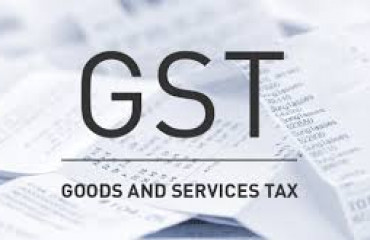
NEW DELHI : The Goods and Services Tax (GST) Council, in a divided decision, decided to amend central and state laws from 1 October to ensure that 28% GST is paid on the full value of amounts deposited by players for betting on online games, casinos, and horse races. However, redeployed winnings will be excluded from the indirect taxation.
NEW DELHI : The Goods and Services Tax (GST) Council, in a divided decision, decided to amend central and state laws from 1 October to ensure that 28% GST is paid on the full value of amounts deposited by players for betting on online games, casinos, and horse races. However, redeployed winnings will be excluded from the indirect taxation.
The new regime will be reviewed after six months of implementation, finance minister Nirmala Sitharaman said.
However, there would be an income tax on winnings, as per law. The GST Council also decided to amend the Integrated GST Act, which deals with importing goods and services, to require registration of offshore gaming platforms serving Indian consumers and to collect GST from them. Also, offshore online money gaming platforms not complying with this requirement will be blocked.
The central government is expected to move amendments to CGST Act in the current session of Parliament. While the proposed changes bring clarity on taxation of online gaming, casinos and horse racing, the Supreme Court will have the final word on tax demands raised so far under existing law. The central government on Tuesday filed a special leave petition in the Supreme Court challenging a Karnataka high court order that gave a favourable ruling in a dispute with Gameskraft Technologies Pvt. Ltd, revenue secretary Sanjay Malhotra said.
Sitharaman informed at a briefing that both Goa and Delhi governments wanted a relook at the decision of the GST Council to levy 28% tax on the full value of bets in these sectors, but certain other states, including West Bengal, Karnataka, Bihar, Uttar Pradesh, Himachal Pradesh, Maharashtra, and Gujarat sought an early implementation of the 28% tax as decided at the last meeting.
The minister also said the GST Council secretariat would work on the legislative amendments to be tabled in Parliament, possibly in the current session, while states will work on amendments to state laws for implementation by 1 October. This is one of the rare events where a decision has been taken without absolute consensus.
Delhi finance minister Atishi said in a statement after the Council meeting "strongly" opposing the new GST rates on online gaming platforms, emphasising the need to reconsider the decision to encourage startups in the country.
"Levying heavy taxes on this rapidly growing industry will burden it and discourage investment in Indian startups, causing a negative impact on the startup ecosystem," Atishi stated.
Malhotra explained that the subject of review by the council in six months will cover the decisions taken by it on Wednesday. Malhotra also explained that the review would not necessitate any further amendments to the law, and any changes required—whether on valuation or tax rate—-could be done by way of notifications or by rule changes.
On the government's legal position, Malhotra said: "The amendments (to the GST law) are prospective, not retrospective. This amendment is more of clarification because betting has always been included as actionable claims, and our belief is that even betting going on in online gaming, casinos, and horse racing are also in the nature of betting and so they are taxable at 28%. This has been our stand, but the high court of Karnataka, as you are aware, has not upheld that stand. We have already filed a Special Leave Petition (SLP) on Tuesday. We are in appeal, and whatever is decided by the Supreme Court will prevail for the period till we have amended the law and issued the notifications."
Experts said the key takeaway from the GST Council's meeting is that the taxation rate does not enforce the worst-case scenario feared by the real-money gaming industry in India. "The rate would still affect the margins of even the largest real money gaming operators in the country, but they should be able to survive—and perhaps even thrive in the long run," said Sudipta Bhattacharjee, a partner at Khaitan & Co.
A statement from The All India Gaming Federation said the decision would severely impact the online gaming sector and result in a situation where a majority of players will no longer be able to survive.
And while established and well-entrenched gaming companies would be able to scrape through, even their revenues and valuations will fall significantly.
Saumya Singh Rathore, co-founder at WinZO, said that the Online Skill Gaming sector is not a homogeneous category and has fairly diverse, nascent, and distinct business models that should be evaluated more carefully.
"Taxing GST on deposits rather than the technology platform commission charged by the companies will make the unit economics unviable, wiping out 80% of the industry, with fatality concentrated in MSMEs and startups that house new-age business models. This increase of 400% will solely encourage the rise of monopolistic play. Reasonable taxation can protect our over 500 million internet consumers from illegal offshore products."
The Federation of Indian Fantasy Sports & E-Gaming Federation, which represents about 50 Indian online gaming companies, said the new tax framework would lead to a very burdensome 350% increase in GST and set the Indian online gaming industry back several years.
